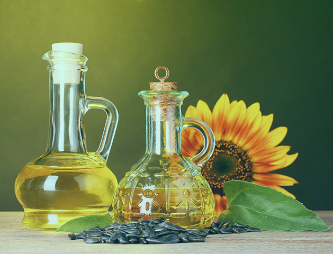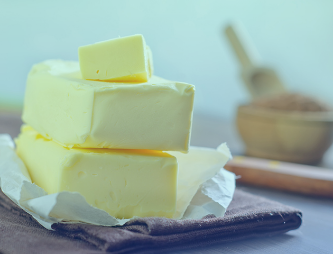-
 01 Natural resourceSee More01 Natural resource
01 Natural resourceSee More01 Natural resourceNatural source of vegetable oil, as the name suggests, are plants.
Natural source of vegetable oil, as the name suggests, are plants.
-
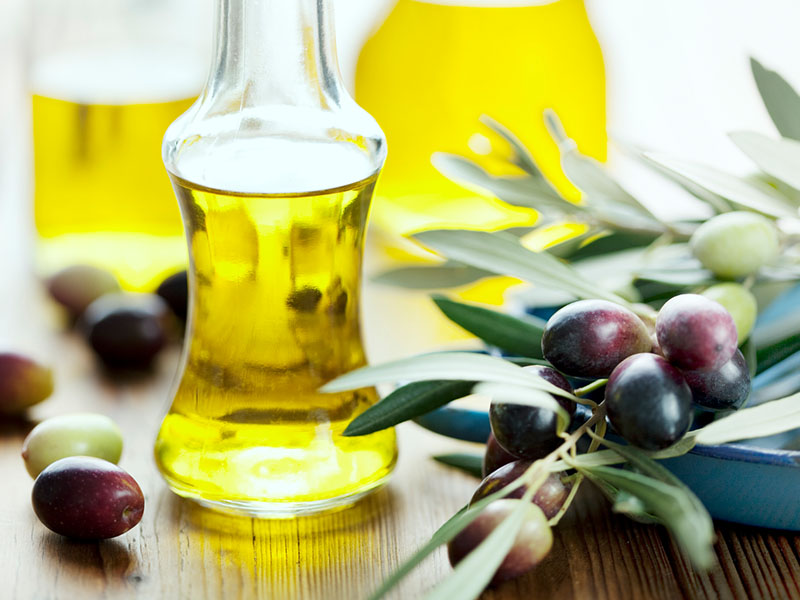 02 Raw materialSee More02 Raw material
02 Raw materialSee More02 Raw materialRaw materials of vegetable oils are olives, sunflowers, corn, cotton, soy, canola, safflower and so on.
Raw materials of vegetable oils are olives, sunflowers, corn, cotton, soy, canola, safflower and so on.
-
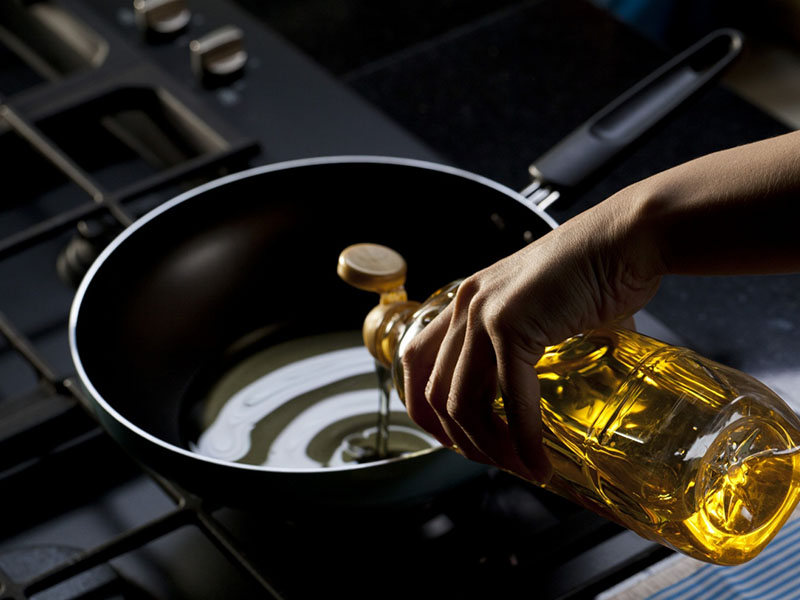 03 Usage areasSee More03 Usage areas
03 Usage areasSee More03 Usage areasVegetable oils are used in food and cooking. In recent years, the demand for the consumption of fast food has led to significant increases in the amount of vegetable oil waste as a result of using frying oil.
Vegetable oils are used in food and cooking. In recent years, the demand for the consumption of fast food has led to significant increases in the amount of vegetable oil waste as a result of using frying oil.
-
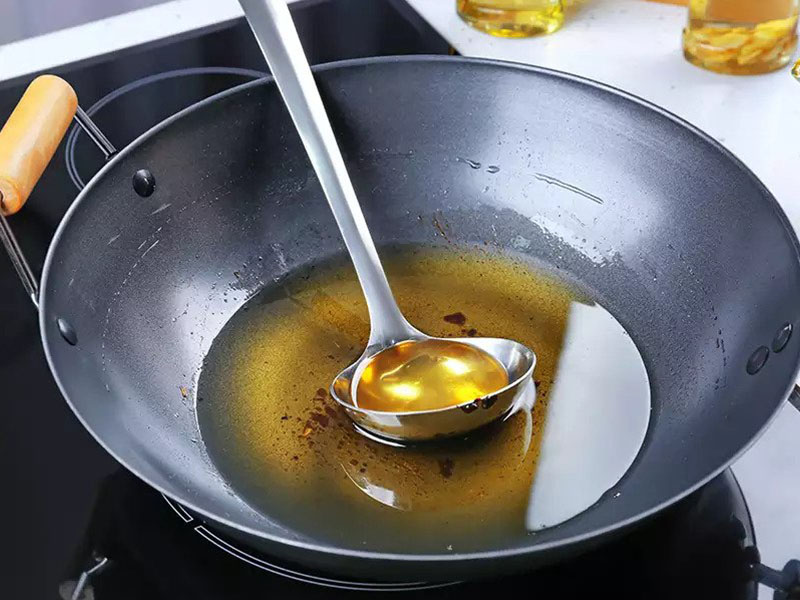 04 Used Frying OilSee More04 Used Frying Oil
04 Used Frying OilSee More04 Used Frying OilAs a result of physical changes in oil during frying; The viscosity increases, the color darkens, the foaming happens, the fume point decreases. Oxidized under high temperature, re-use frying oils are not suitable for health.
As a result of physical changes in oil during frying; The viscosity increases, the color darkens, the foaming happens, the fume point decreases. Oxidized under high temperature, re-use frying oils are not suitable for health.
-
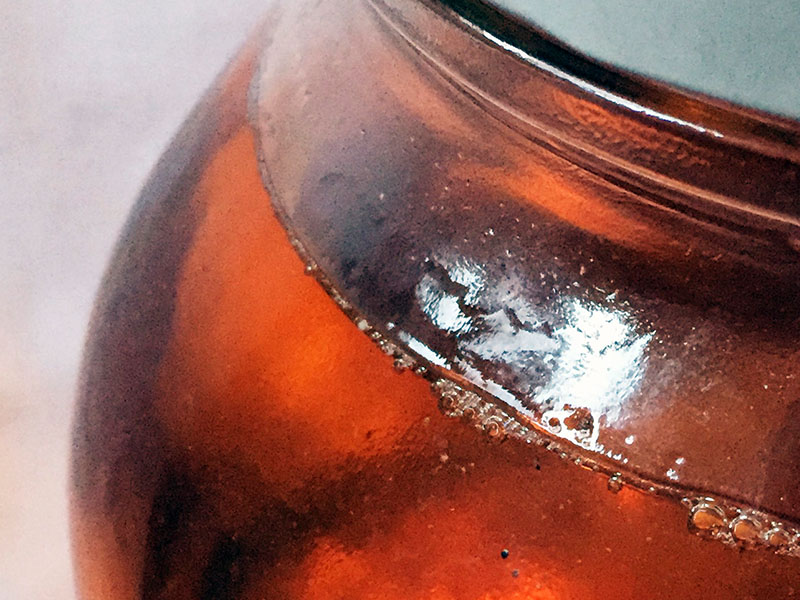 05 Environmental and Human Health HazardsSee More05 Environmental and Human Health Hazards
05 Environmental and Human Health HazardsSee More05 Environmental and Human Health HazardsUsed vegetable oil waste should never be reused. If vegetable oil wastes are poured into the sink, they cause clogging of the sink and sewer pipes. One liter of vegetable waste oil pollutes approximately one million liters of drinking water. It is very expensive and difficult to clean contaminated groundwater. Groundwater is an important source of drinking water for every country. In addition, vegetable oil waste mixed with wastewater prevent fish from getting air by covering the water surface in the sea and rivers, cause fish deaths and deteriorate the taste of fish.
Damages when spilled into the sink;- It increases the operating costs by blocking the sewer system.
- Increases the load of wastewater treatment facilty and adversely affects treatment efficiency.
- We eliminate disposable waste.
Damages when spilled into the soil;
- Pollutes the soil and adversely affects the structure of the soil
- Water soluble pollutants are carried to the groundwater by rainfall and cause groundwater pollution.
- We eliminate disposable waste.
Damages when spilled into water source;
- Pollutes the water source and adversely affects aquatic life.
- It prevents the transfer of oxygen from air to water by covering the water surface and adversely affects the life of aquatic organisms.
- We eliminate disposable waste.
- One liter of waste oil contaminates one million liters of water.
Damages when burned;
- It causes air pollution and adversely affects lives of livings.
- We eliminate disposable waste.
Damages in case of soap;
- Causes skin cancer.
Used vegetable oil waste should never be reused. If vegetable oil wastes are poured into the sink, they cause clogging of the sink and sewer pipes. One liter of vegetable waste oil pollutes approximately one million liters of drinking water. It is very expensive and difficult to clean contaminated groundwater. Groundwater is an important source of drinking water for every country. In addition, vegetable oil waste mixed with wastewater prevent fish from getting air by covering the water surface in the sea and rivers, cause fish deaths and deteriorate the taste of fish.
Damages when spilled into the sink;- It increases the operating costs by blocking the sewer system.
- Increases the load of wastewater treatment facilty and adversely affects treatment efficiency.
- We eliminate disposable waste.
Damages when spilled into the soil;
- Pollutes the soil and adversely affects the structure of the soil
- Water soluble pollutants are carried to the groundwater by rainfall and cause groundwater pollution.
- We eliminate disposable waste.
Damages when spilled into water source;
- Pollutes the water source and adversely affects aquatic life.
- It prevents the transfer of oxygen from air to water by covering the water surface and adversely affects the life of aquatic organisms.
- We eliminate disposable waste.
- One liter of waste oil contaminates one million liters of water.
Damages when burned;
- It causes air pollution and adversely affects lives of livings.
- We eliminate disposable waste.
Damages in case of soap;
- Causes skin cancer.
-
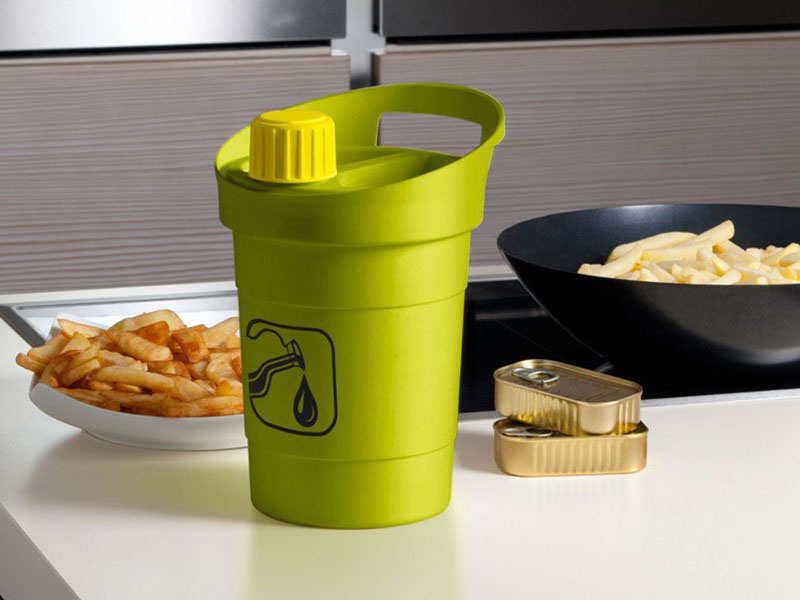 06 Methods to be AppliedSee More06 Methods to be Applied
06 Methods to be AppliedSee More06 Methods to be AppliedIf possible, used frying oils should be collected in containers, if this is not possible, should be stored in their own packaging,
Contacting the municipality of service for collection of used frying oils,
If possible, used frying oils should be collected in containers, if this is not possible, should be stored in their own packaging,
Contacting the municipality of service for collection of used frying oils,
-
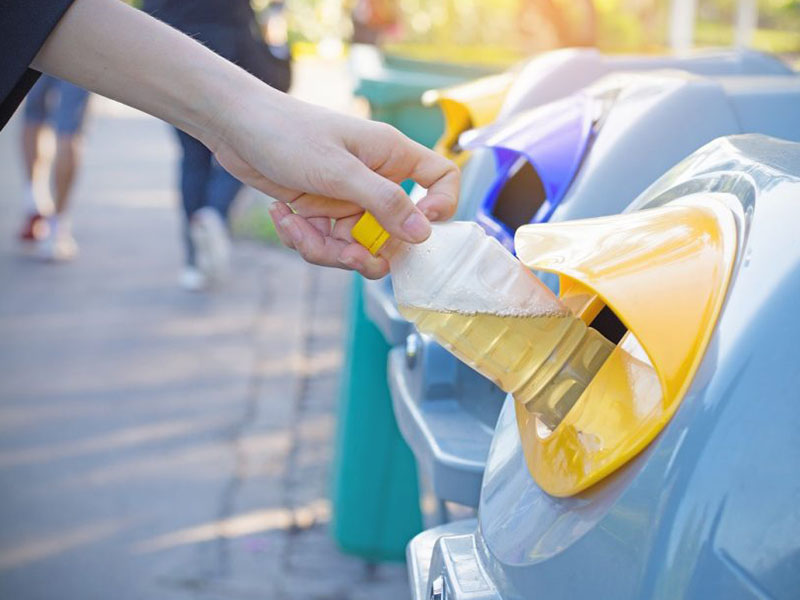 07 Collection PointsSee More07 Collection Points
07 Collection PointsSee More07 Collection PointsThe Regulation on the Management of Vegetable Waste Oils was prepared by the Ministry in order to eliminate the negative effects of the vegetable waste oils, including used frying oils, to the health and environment of the living, and entered into force on 06.06.2015. In accordance with this regulation, waste oils should be collected separately at the source (kitchen, etc.) and delivered to recovery facilities or authorized collectors licensed by the Ministry of Environment and Urbanization.
For the collection of oils originating from restaurants, food factories, hotels, motels, cafeterias, touristic facilities and holiday villages and other similar facilities, annual contracts should be made with environmentally licensed recovery facilities or collectors and used frying oils in the houses should be given to the collection system established by the related municipality.The Regulation on the Management of Vegetable Waste Oils was prepared by the Ministry in order to eliminate the negative effects of the vegetable waste oils, including used frying oils, to the health and environment of the living, and entered into force on 06.06.2015. In accordance with this regulation, waste oils should be collected separately at the source (kitchen, etc.) and delivered to recovery facilities or authorized collectors licensed by the Ministry of Environment and Urbanization.
For the collection of oils originating from restaurants, food factories, hotels, motels, cafeterias, touristic facilities and holiday villages and other similar facilities, annual contracts should be made with environmentally licensed recovery facilities or collectors and used frying oils in the houses should be given to the collection system established by the related municipality. -
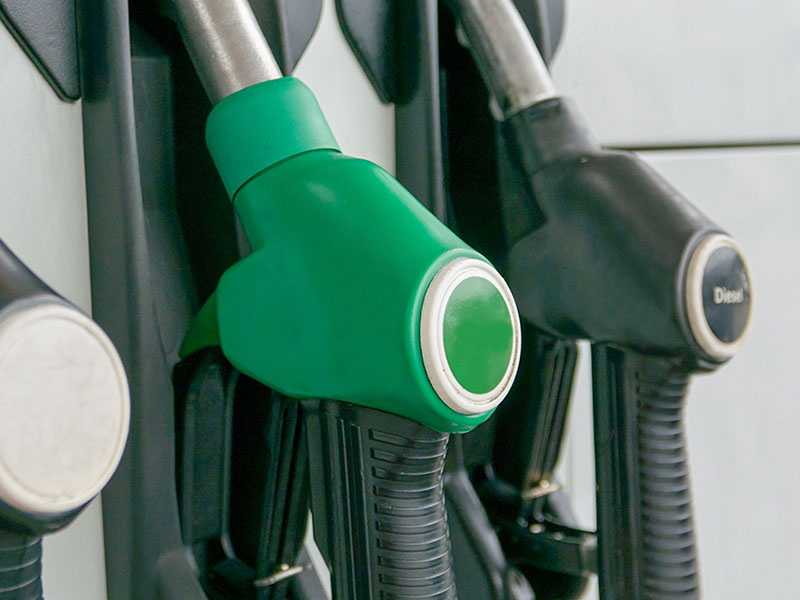 08 RegainSee More08 Regain
08 RegainSee More08 RegainPursuant to the provisions of the Regulation on Management of Vegetable Waste Oils published in the Official Gazette dated 06.06.2015 and numbered 29378, vegetable waste oils can only be used in biodiesel and biogas production in accordance with the relevant technical regulations. Biodiesel is used by adding to diesel type fuels within the limits determined by EMRA.
Pursuant to the provisions of the Regulation on Management of Vegetable Waste Oils published in the Official Gazette dated 06.06.2015 and numbered 29378, vegetable waste oils can only be used in biodiesel and biogas production in accordance with the relevant technical regulations. Biodiesel is used by adding to diesel type fuels within the limits determined by EMRA.

